Speech pathologists can deliver language therapy indirectly by training and coaching allied health assistants and learning support educators and aides in mainstream settings
The big picture:
To support children with language delays and disorders in preschools and schools at scale, speech pathologists can train other professionals and paraprofessionals to deliver evidence-based language therapy.
Why it matters:
SLPs have an important role to play in mainstream settings, like preschools and schools. But there are not enough of us, especially in remote and rural communities, and in systems where SLPs are not routinely found in education settings (like NSW). Effective delegation of service-delivery can:
- increase the total numbers of students helped;
- build the capacity of other professionals and paraprofessionals to recognise language disorders in classrooms and to employ evidence-based strategies to help; and
- increase collaboration and multidisciplinary practice within mainstream settings.
Case in point:
Dialogic reading, a type of shared book reading, is an effective strategy for improving the oral language skills of preschoolers with language disability or delays.
Dr Lindsay Dennis and colleagues have published a tutorial specifically to help SLPs to coach others to deliver dialogic reading with specific vocabulary and other language goals through a pre-planned and/or scripted, four-step process represented by the acronym PEER:
- Prompt: prompt the child to speak using completion, recall, open-ended questions, wh-questions, and/or distancing (CROWD) prompts.
- Evaluate: the child’s response for accuracy.
- Expand on the child’s response by rephrasing it or adding information to it.
- Repeat: asking the child to repeat the expansion.
Yes, but:
It’s very important that evidence-based treatments are delivered in the way they were designed, and that the targets are appropriate for each child. SLPs can help by:
- scripting sessions with specific books and with pre-selected specific vocabulary and/or syntax targets;
- coaching colleagues by setting goals, observing them delivering the therapy, and then providing constructive feedback and opportunities for reflection; and
- providing additional practical tips and strategies along the way.
Bottom line:
In Australia, the new Foundational Supports system is slated to roll out over the next 5 years. As this happens, it makes sense to think about different delivery service models for children with language challenges, including SLP coaching models in mainstream preschools and schools. Maintaining treatment fidelity for evidence-based supports for children with language challenges remains essential, regardless of the model.
Go deeper:
Dennis LR, Farquharson K, Reed AC, Summy R, Clark KG, Westmoreland J. Practice-Based Coaching for Speech-Language Pathologists Supporting Paraeducators and Speech Language Pathology Assistance Lang Speech Hear Serv Sch. 2023 Jan 17;54(1):160-170. (open access!)
Free resource:
Recommended picture books for preschoolers (with defined vocabulary)
Read more from us:
Reading with – not to – your pre-schoolers: how to do it better (and why)
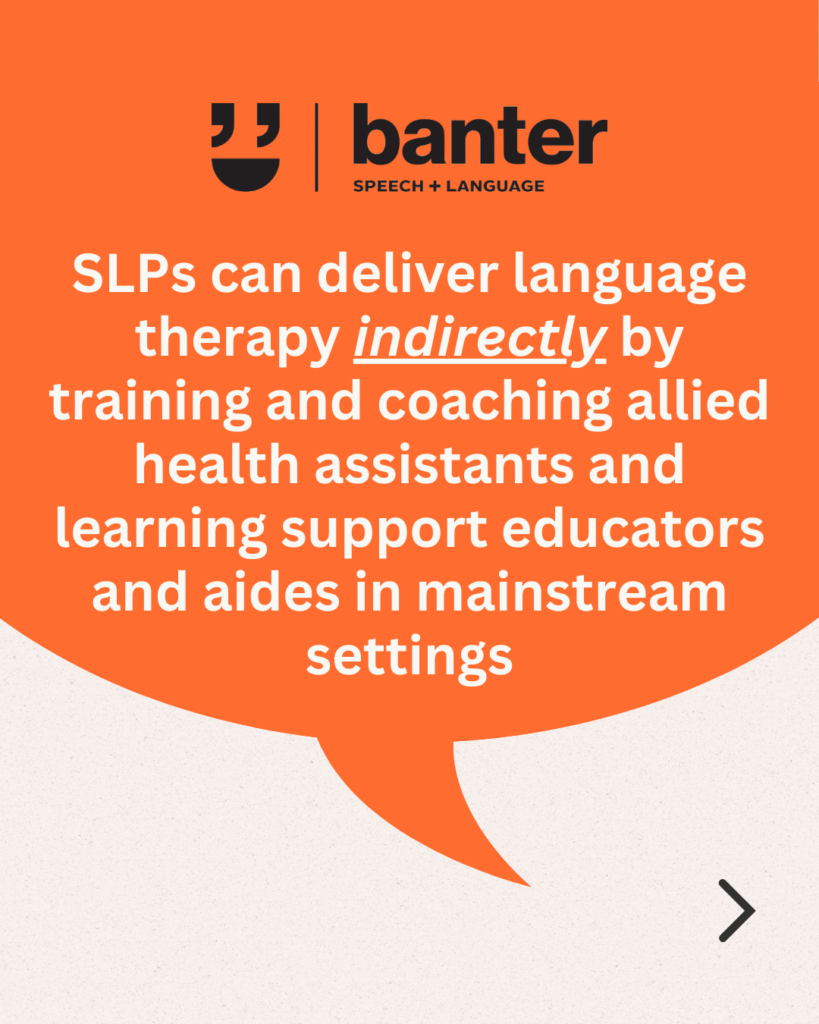
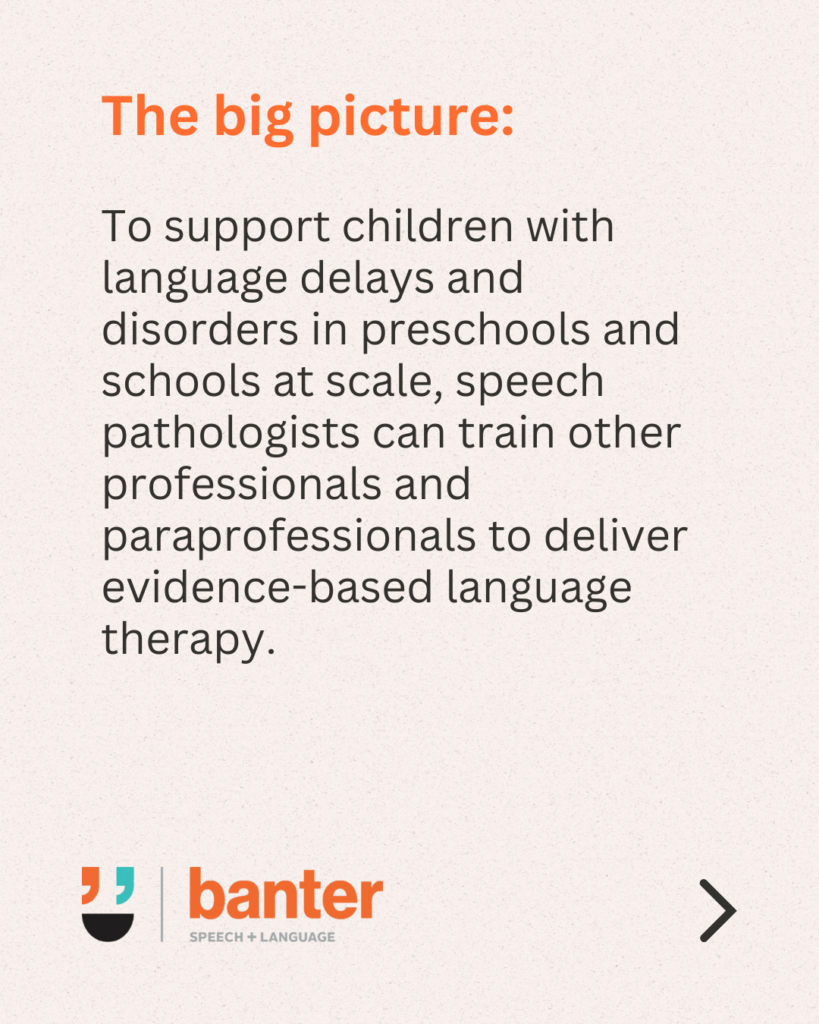
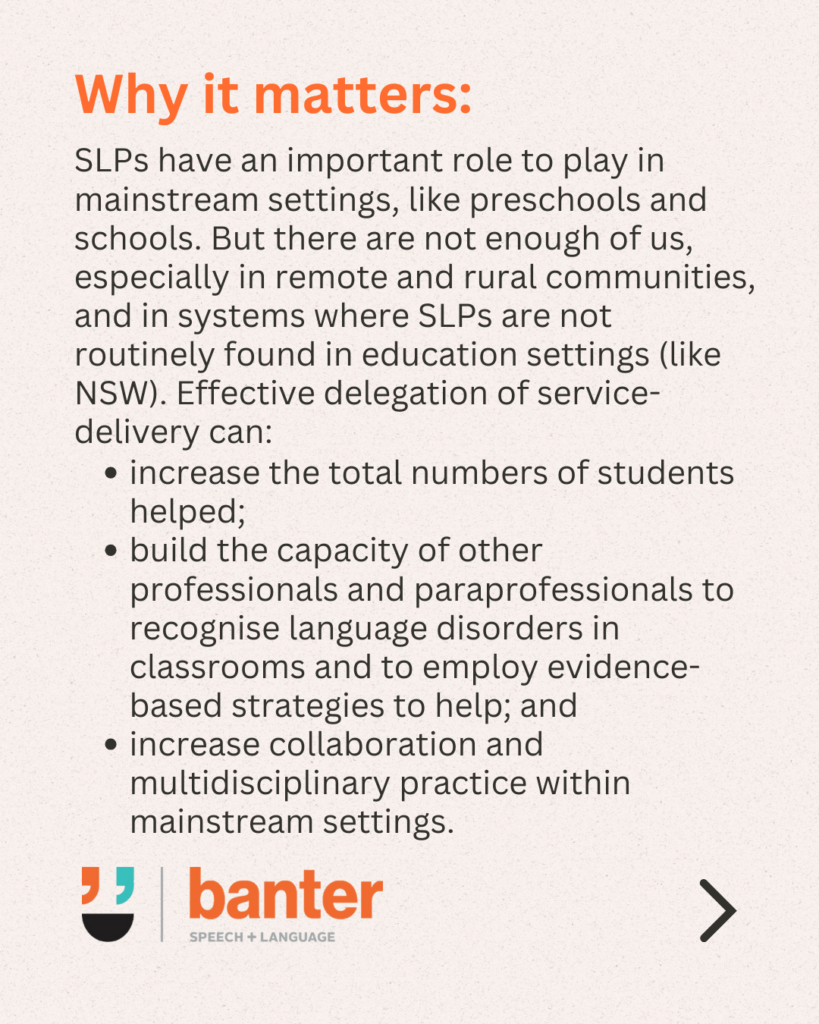
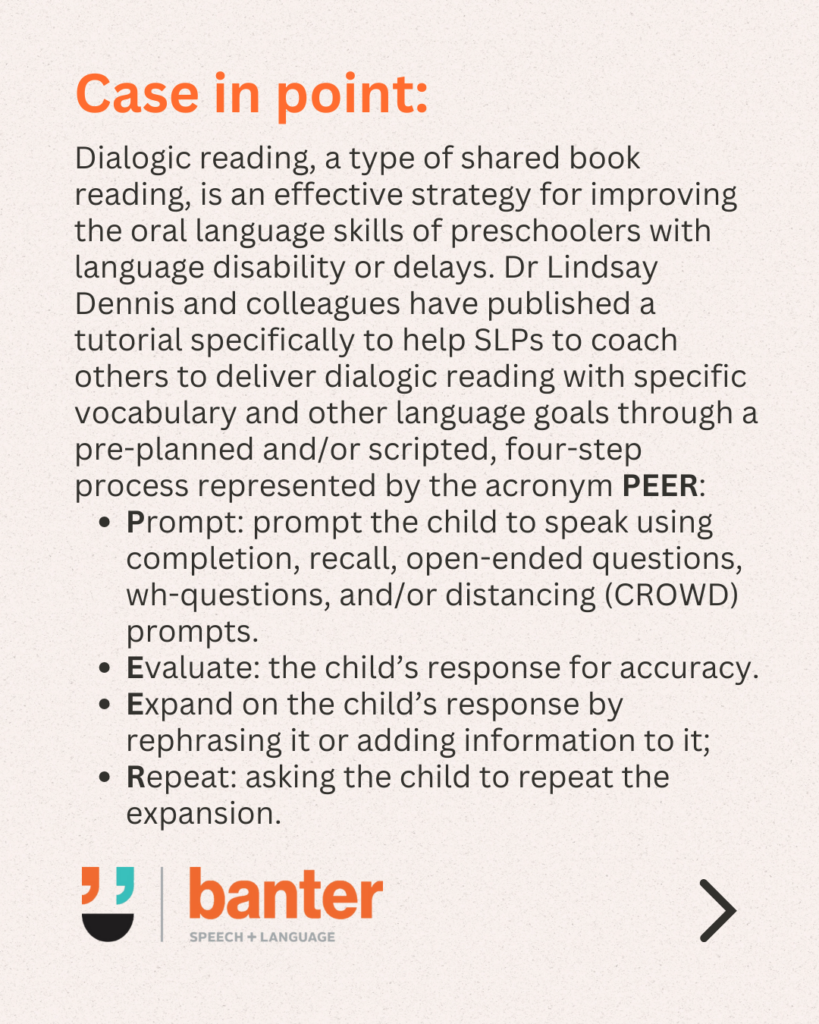
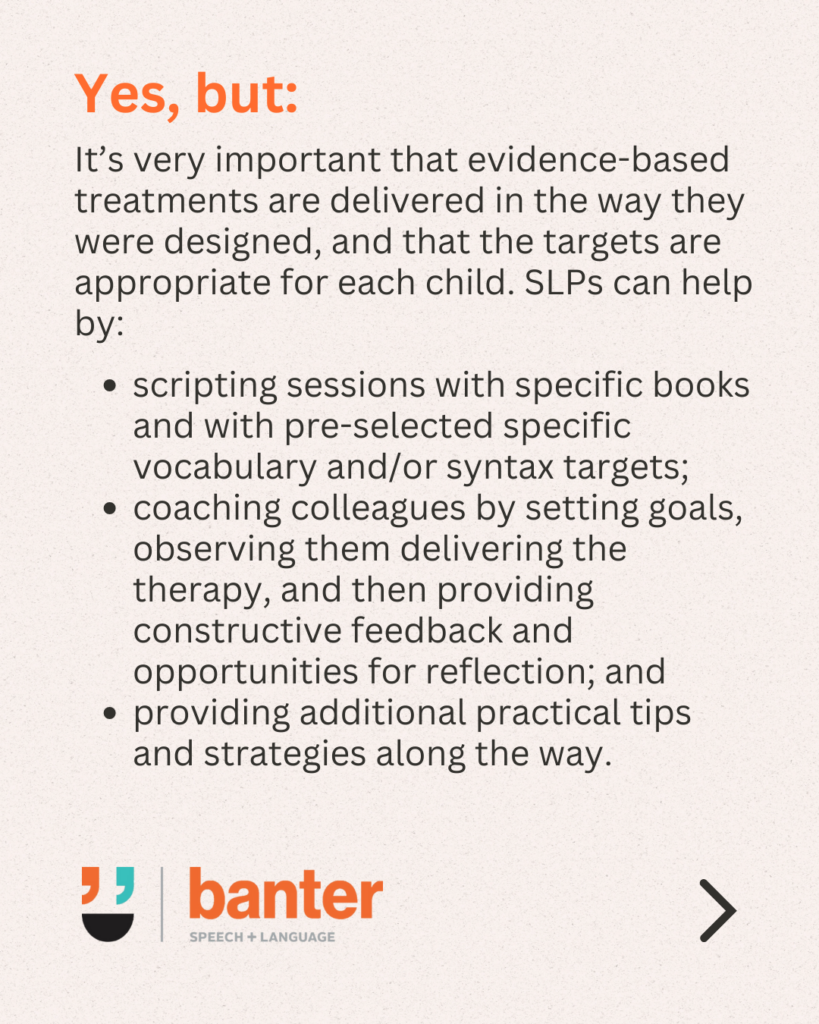
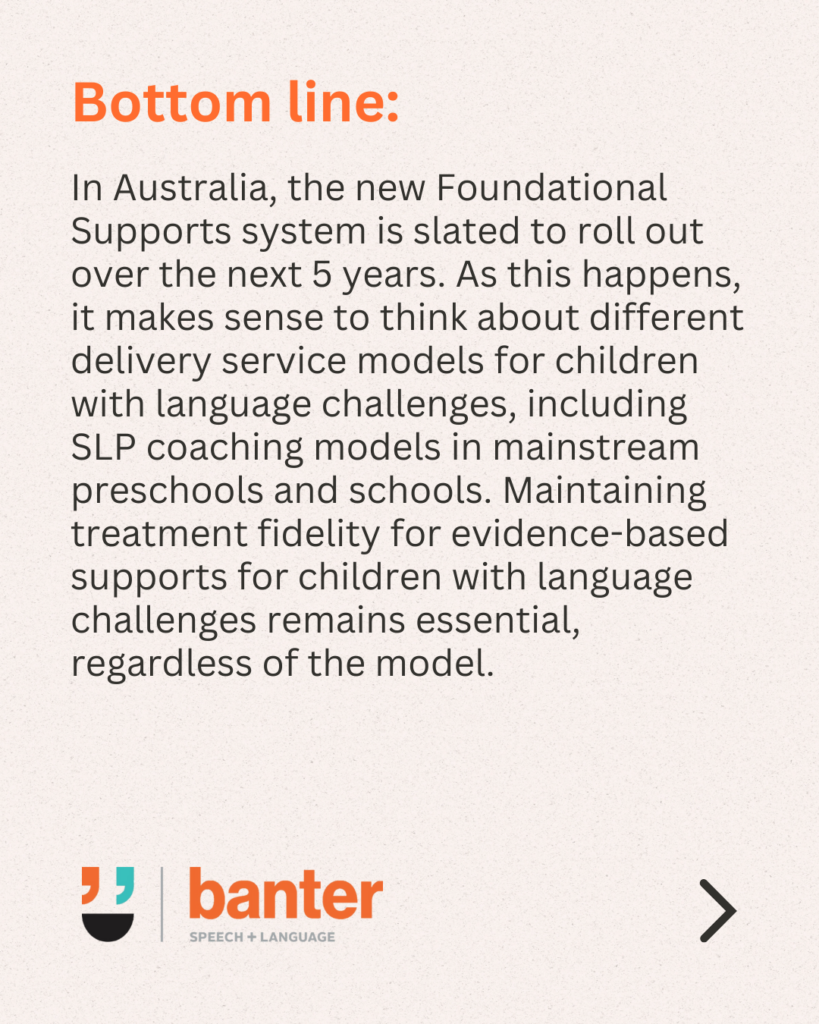
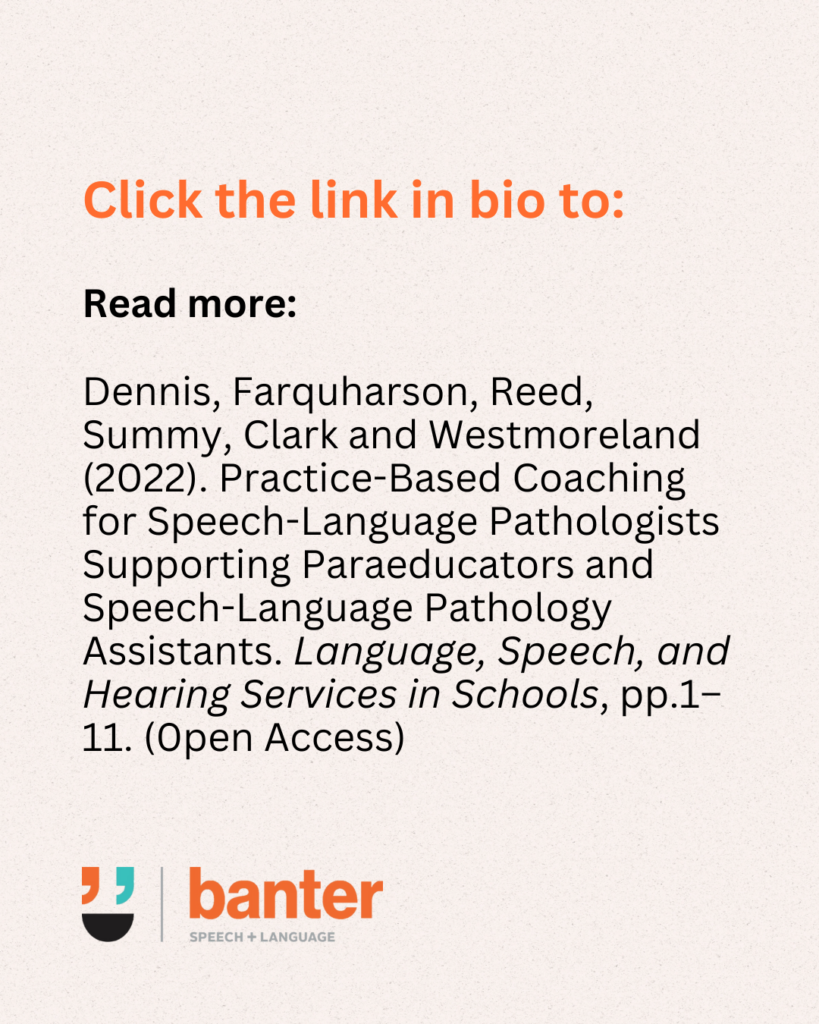
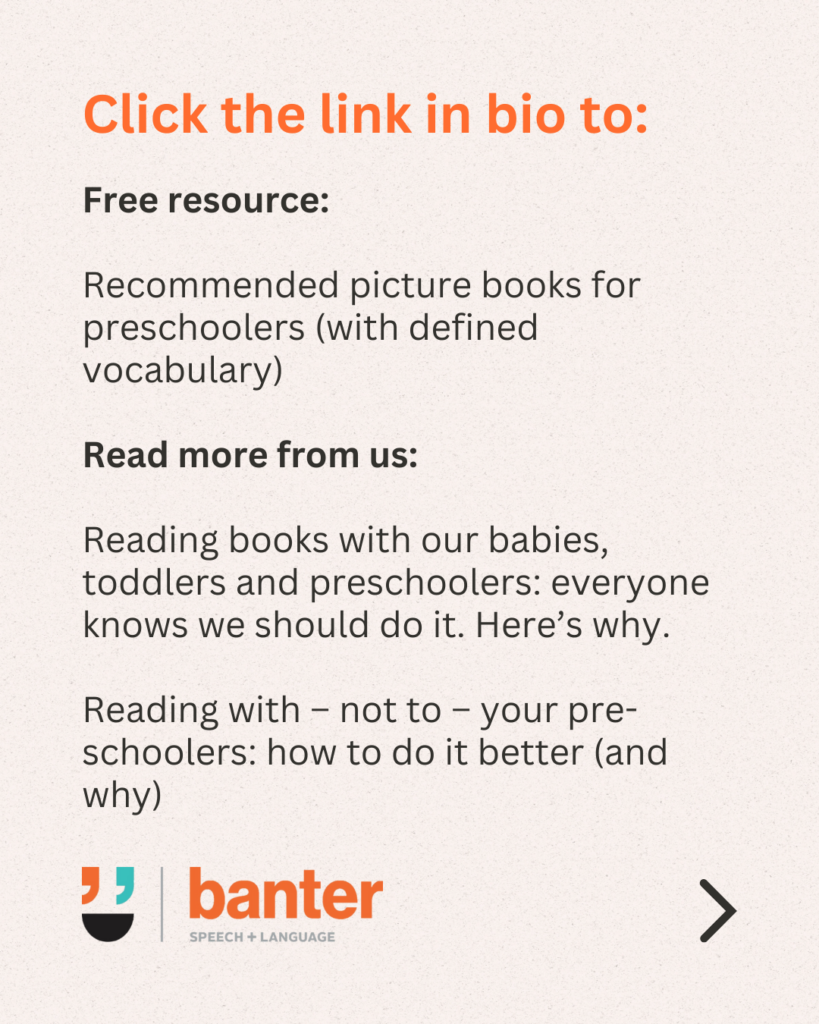
This article also appears in a recent issue of Banter Booster, our weekly round up of the best speech pathology ideas and practice tips for busy speech pathologists, speech pathology students and others.
Sign up to receive Banter Booster in your inbox each week:

Hi there, I’m David Kinnane.
Principal Speech Pathologist, Banter Speech & Language
Our talented team of certified practising speech pathologists provide unhurried, personalised and evidence-based speech pathology care to children and adults in the Inner West of Sydney and beyond, both in our clinic and via telehealth.








